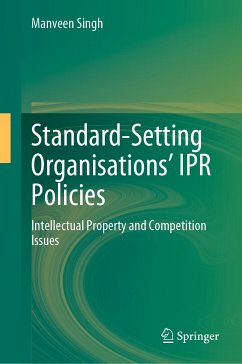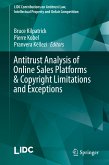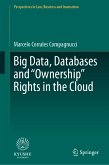While much has been said about the benefits arising out of collaborative standard-setting, disputes involving SEP licensing have not been limited to the courts, and have attracted a significant amount of scrutiny by competition/antitrust agencies. The Book provides an elaborate account of the anti-competitive concerns surrounding standard-setting, and further documents the role of courts and competition agencies in ensuring good faith licensing negotiations between the SEP holders and implementers. Despite largely focusing on SEP licensing disputes in the USA and EU, the Book also offers a dedicated chapter on standard-setting in the Indian context. The readers are presented with an in-depth discussion on the contrasting approaches adopted by the courts and the Competition Commission of India (CCI), in addressing disputes involving SEPs. The said discussion is supplemented by a careful analysis of the SEP licensing guidelines to have emerged out of other implementer-oriented economies like China and Japan. By doing so, the Book offers readers the opportunity to study and compare the SEP licensing framework in developed, as well as developing economies. SSO IPR policies play an integral role in the development of standards, and with technologies such as the Internet of Things and 5G knocking on the doors, the Book makes for a valuable study on the nuances of standard-setting through the lens of SSOs, and will find takers among a wide reader base of students, researchers, academics, law practitioners, corporates, and policy makers.
Dieser Download kann aus rechtlichen Gründen nur mit Rechnungsadresse in A, B, BG, CY, CZ, D, DK, EW, E, FIN, F, GR, HR, H, IRL, I, LT, L, LR, M, NL, PL, P, R, S, SLO, SK ausgeliefert werden.









